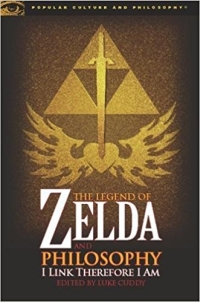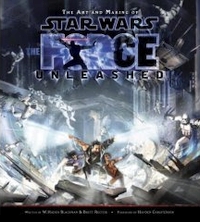This article is from the first edition of The Video Game Librarian website I published between 2008 and 2010. It was originally written on August 13, 2008.
 A new book titled The Legend of Zelda and Philosophy recently popped up on Amazon. The Legend of Zelda and Philosophy is an essay compilation edited by Luke Cuddy, and it’ll be released on November 28.
A new book titled The Legend of Zelda and Philosophy recently popped up on Amazon. The Legend of Zelda and Philosophy is an essay compilation edited by Luke Cuddy, and it’ll be released on November 28.
Using the game franchise as a springboard, here’s a look at some of the philosophical questions the publisher believes the book might be able to answer:
With both young and adult gamers as loyal fans, The Legend of Zelda is one of the most beloved video game series ever created. The contributors to this volume consider the following questions and more: What is the nature of the gamer’s connection to Link? Does Link have a will, or do gamers project their wills onto him? How does the gamer experience the game? Do the rules of logic apply in the game world? How is space created and distributed in Hyrule (the fictional land in which the game takes place)? How does time function? Is Zelda art? Can Hyrule be seen as an ideal society? Can the game be enjoyable without winning? The Legend of Zelda and Philosophy not only appeals to Zelda fans and philosophers but also puts video games on the philosophical map as a serious area of study.
The Legend of Zelda and Philosophy is the latest entry in the longrunning “Popular Culture and Philosophy” series. The series has spawned dozens of volumes looking into the deeper meaning of our favorite entertainment, with previous philosophical deconstructions focused on Seinfeld, The Simpsons, The Beatles, zombies, James Bond, The Matrix, The Lord of the Rings, Star Wars, poker, and Buffy the Vampire Slayer.
The Legend of Zelda is the first video game entry in the “Popular Culture and Philosophy” series, but it won’t be the last. The popular plans to release World of Warcraft and Philosophy in 2009.
 LucasArts is pulling out all the stops for Star Wars: The Force Unleashed. In addition to the video game, their cross-format media event will feature a tie-in novel, a graphic novel, and an art book (The Art and Making of Star Wars: The Force Unleashed) detailing the making of the game.
LucasArts is pulling out all the stops for Star Wars: The Force Unleashed. In addition to the video game, their cross-format media event will feature a tie-in novel, a graphic novel, and an art book (The Art and Making of Star Wars: The Force Unleashed) detailing the making of the game.
 A new book titled
A new book titled